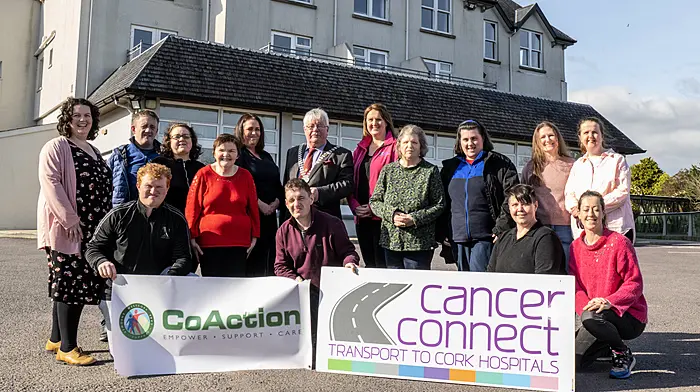THE Health Protection Surveillance Centre has said that an additional 17 patients diagnosed with Covid-19 in Ireland have died. There have now been 71 Covid-19 related deaths in Ireland.
Three of the deaths confirmed today were in the south of the country.
There have been 325 new confirmed cases today, meaning there are now 3,235 confirmed cases in Ireland, and 238 of these are in Co Cork.
Of the 17 deaths confirmed today:
- 8 deaths were located in the east, 3 in the south, 3 in the north-west and 3 in the west of the country;
- Patients included 4 females and 13 males;
- The median age of today’s reported deaths is 84;
- 8 patients were reported as having underlying health conditions.
To date, 30,213 tests have been carried out in laboratories across the country, as of midnight, Monday 30 March.
Over the past week, the positivity rate for tests carried out increased from 6% to 15%, as per the objective of our new case definition.
Today’s data from the HPSC, as of midnight, Sunday 29th March (2,677 cases), reveals:
- 49% are male and 49% are female, with 118 clusters involving 494 cases
- 22% of clusters located in private houses, 20% located in nursing homes and 18% located in hospitals
- Median age of confirmed cases is 47 years
- 703 cases (26%) have been hospitalised
- Of those hospitalised, 113 cases have been admitted to ICU
- 647 cases are associated with healthcare workers
- Dublin has the highest number of cases at 1,487 (55% of all cases) followed by Cork with 238 cases (9%)
- Of those for whom transmission status is known: community transmission accounts for 51%, close contact accounts for 26%, travel abroad accounts for 23%
The National Public Health Emergency Team met today and made the following recommendations:
- To focus contact tracing on suspect cases within prioritised groups. The HPSC to update guidance to GPs and contact tracing teams.
- Contact tracing to encompass the period from 48 hours prior to the onset of symptoms given the risk of asymptomatic transmission.
- In response to infections in long-term residential care (nursing homes, disability and mental health) and homecare settings NPHET will work with the HSE to identify a number of measures which can be taken to strengthen support to staff and providers of nursing home care.
Dr Tony Holohan, chief medical officer, Department of Health, said: ‘The measures that we have recommended today should significantly enhance the preparedness and response to cases and outbreaks in nursing homes and other residential settings. As we have said from the beginning our efforts must be focused on protecting the most vulnerable and these recommendations announced today seek to achieve this.’
Dr Ronan Glynn, deputy chief medical officer, Department of Health, said: ‘As the number of cases increases, we are getting a better picture of our experience of this virus in our community. Today we are providing more information on cases in healthcare workers and deaths. We will continue to provide more details as reliable data emerges.’
The briefing noted there was a substantial backlog in test results, due to the changed criteria for testing. Dr Cillian de Gascun admitted that some people are now waiting 7-10 days for test results, as priority has been given to heathcare workers and vulnerable people. There has been a significant reduction in testing in recent days, he added, although testing would be ramped up again as more equipment becomes available.
Dr Holohan said if you are still waiting for a test result the ‘important thing’ to remember was to self-isolate for 14 days. Each case now appears to infect an average of three people, he added.
Dr Colm Henry said that a suggestion on social media that ‘thousands of swabs’ which had been taken had been ‘discarded’ was completely false. As was another tweet suggesting four nurses had died. ‘Twitter is not the place to go for information,’ agreed Dr Holohan.
‘Since the beginning, there have been a great deal of stories, a great deal of which are not true, which are very hurtful to people and to people who are ill, and are completely untrue and very distressing,’ added Dr Henry.
The Department of Health’s COVID-19 Information Dashboard provides the latest case information.







